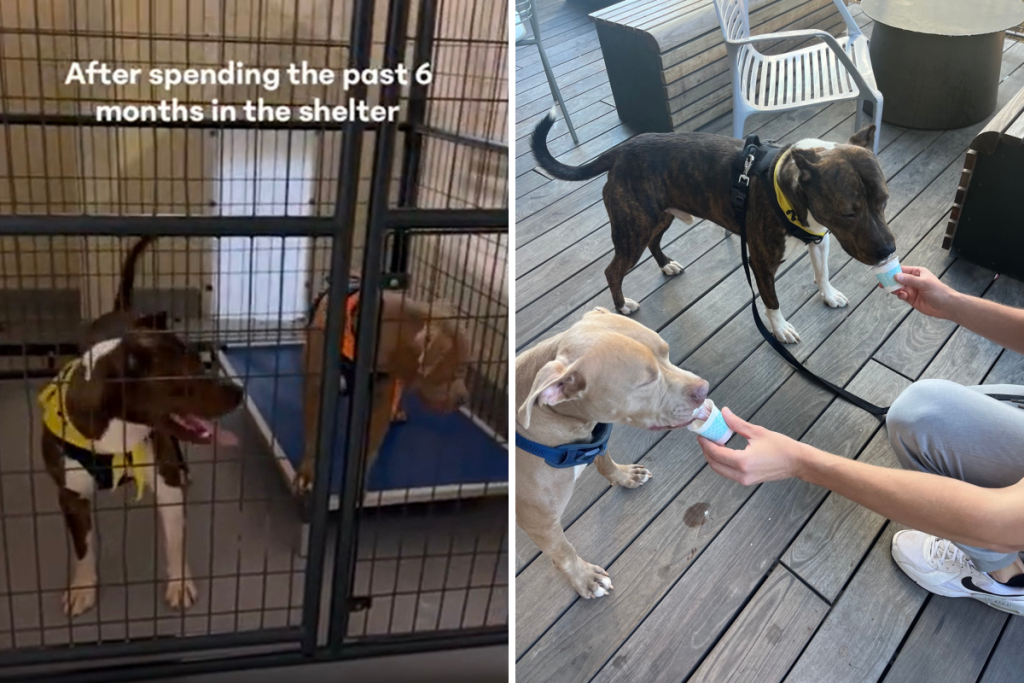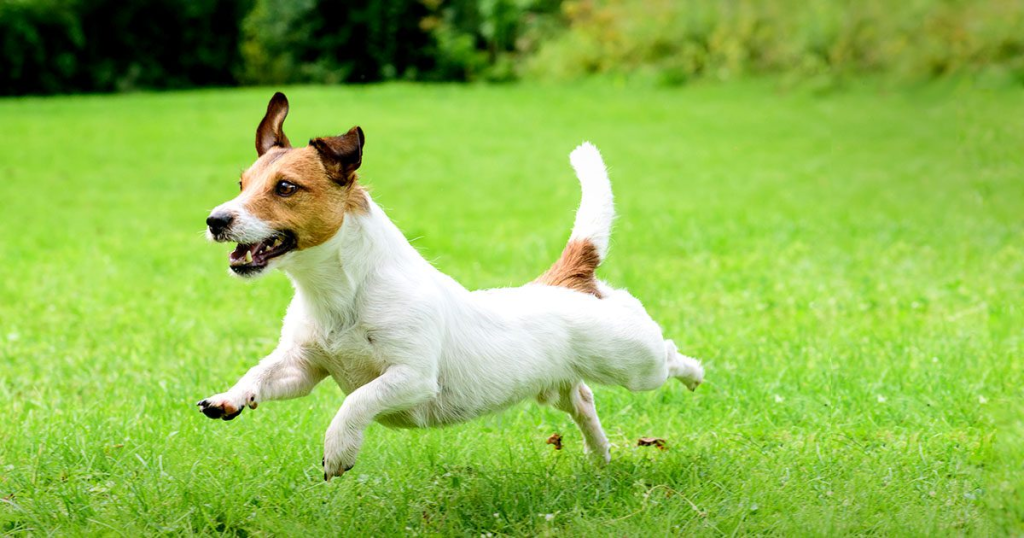
Living in a shelter can be hard for animals but these two pit bull terriers have managed to make the best out of a bad situation.
Moon Pie and Clipper, both two years old, have been joined at the hip for the past six months in Lifeline Animal Project, an intake shelter for stray dogs in Atlanta, Georgia.
Recently, Connor Abdo, an animal welfare advocate, treated the “best friends” to a day on November 5 and captured all of their fun on camera.
“The shelter is a very stressful environment for the dogs so having a friend is really helpful,” Abdo told Newsweek.

From making friends with strangers to slurping a puppuccino, Abdo said, “they had the best day ever.”
The video was uploaded to Abdo’s dog supply business, @salvation_bark, on TikTok, where shelters receive a donation of half the proceeds.
During the video, the pair can barely contain their excitement as they smile while riding in the back of Abdo’s car. It soon becomes clear that they weren’t shy and are willing to greet everyone they meet.
“They are the definition of you can’t judge a book by its cover. They are both big softies who love kisses, other dogs, and playing,” Abdo said.
However, the video has a bittersweet twist because it’s the final time the tan and white dog, Clipper, will play with Moon Pie, as he has since been adopted.

“It is sad for Moon Pie that his friend is gone but we are confident he will be adopted soon. It is difficult to find an adopter willing to take both dogs though.
“Moon Pie would thrive in any environment. He’d love a dog friend,” Abdo said.
So far, the clip has over 6,000 views and more than 1,000 likes along with plenty of comments.
One user said: “I’m a volunteer and I do this for all the long term dogs at a local shelter. They needed that much needed break from the shelter. So thank you!!!”
Another pointed out: “They seem so well behaved!”
“Such softies who just need love,” said another person.
Another said: “I hope they find forever homes soon.”

Recently, a shelter volunteer showed the reality of living in a shelter for one dog who is yet to be adopted after 1,058 days. But dreams do come true, as proven by Nova, a dog who has finally found a loving family to call her own after more than two years in a shelter.
Unyielding Devotion: Magnus Stands by His Comatose Owner, a Tale Overflowing with Heartfelt Love

“Magnus: The Embodiment of Unconditional Loyalty and Comfort

Meet Magnus, a faithful canine companion who demonstrated unwavering loyalty when his owner, Brian Benson, faced a deep coma. For three consecutive days, Magnus refused to leave Benson’s side, leaving both doctors and onlookers deeply moved by this extraordinary display of devotion.
The loyalty of dogs is a well-known treasure, and we often turn to them for their steadfast dedication and unwavering affection. Magnus, however, takes this loyalty to a whole new level.
Brian Benson’s journey began with respiratory distress, leading to a three-night hospital stay as doctors diligently worked to diagnose his condition. Hospital stays can be incredibly trying, especially when awaiting potentially distressing news. But throughout this challenging period, Magnus remained an unwavering presence, bringing solace to Benson and providing support to his young daughters. Even though family visitation hours were limited, Magnus was granted permission to remain by Benson’s side throughout.
Magnus, a trained service dog, is a six-year-old yellow Labrador Retriever with a unique ability to care for his human companion. Together, Benson and Magnus form a dedicated team, often visiting terminally ill patients and grieving families to offer comfort and solace.
In this instance, Magnus took on the role of a comforting presence for Brian Benson. Initially adopted as a beloved family pet, his innate capacity to care for those around him prompted Benson and his family to have Magnus trained as a therapy dog.

Benson has expressed overwhelming gratitude for Magnus’ unwavering companionship during his hospital stay. It was during this challenging time that Benson received the diagnosis of cardiomyopathy, indicating a diminished functioning of his heart.

Benson shared his heartwarming story on social media, accompanied by touching videos that showcase Magnus sleeping beside him and providing comfort to his daughters during these trying circumstances.

The bond between Magnus and Benson serves as a powerful testament to the incredible loyalty and boundless love that dogs wholeheartedly offer. They remind us that in our darkest moments, our furry friends can be a beacon of light and unwavering support.



Leave a Reply